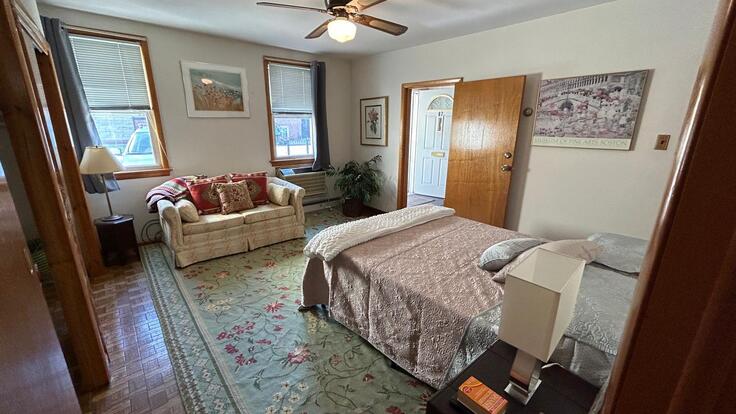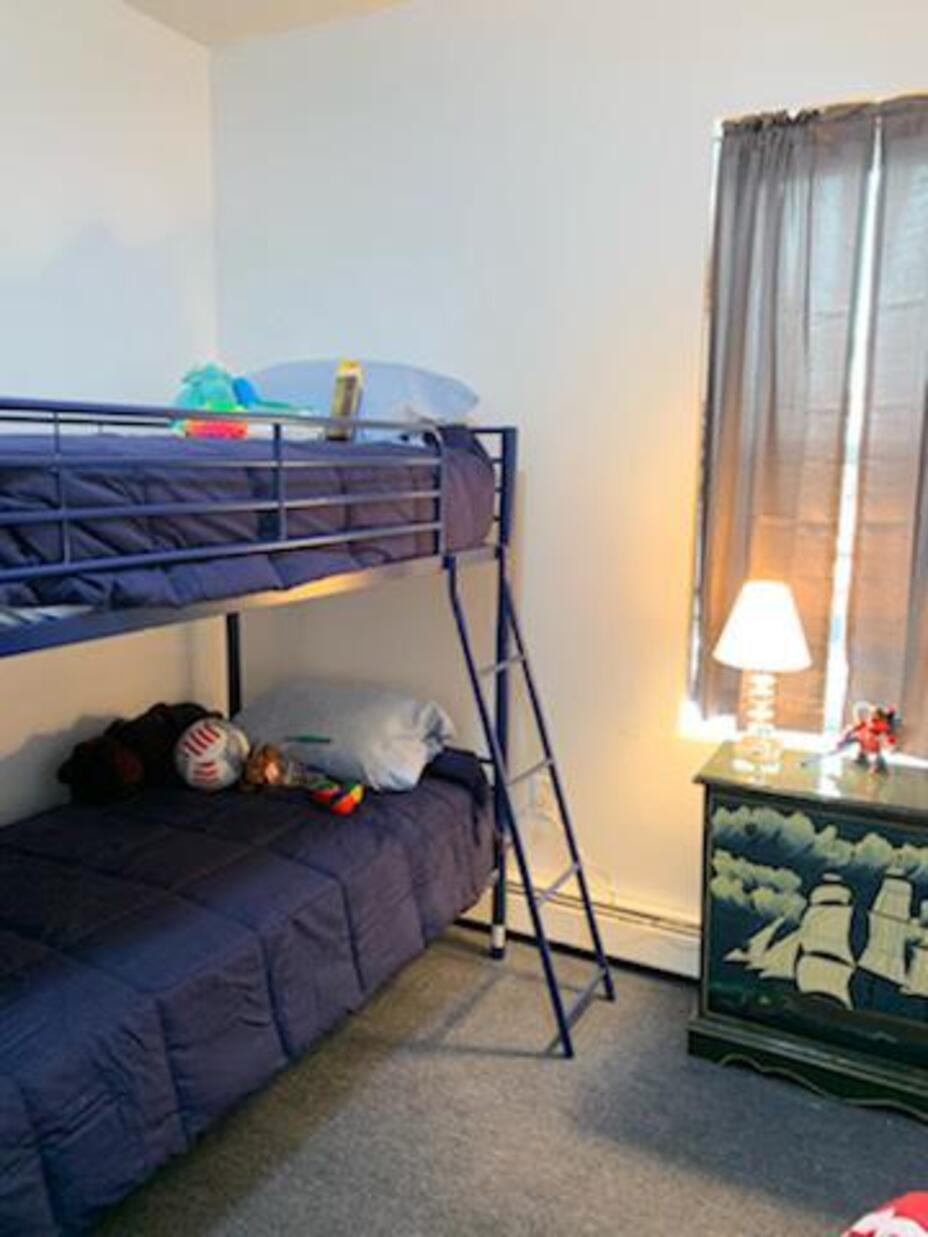
In the last year, the IRC in NJ supported over 3,000 new clients arriving as refugees and asylees. It was a difficult year for many Afghan, Cuban/Haitian, Ukranian and all migrant families who have been either evacuating or migrating to start fresh. In 2022, there were delays, limitations, and misinformation that affected clients’ access to housing which compounded into a year of distress and resilience.
The IRC in NJ Housing & Logistics team were determined to ensure clients were on a path towards finding permanent housing. They assisted around 300 clients with move ins, furnishings, and viewing apartments to ensure homes were safe, sanitary, and affordable. The reality of 2022 was that there were many more clients seeking IRC in NJ’s support while in the background, the housing landscape and processes of Union County were going through a drastic shift.
A Shifting Housing Landscape
Many families resettled in Union County were devastatingly displaced at the end of 2021 as a result of Hurricane Ida. In the county, over 1,000 apartments that receive public assistance from the federal government were damaged and more than 800 families were displaced. Public housing complexes, where many IRC in NJ clients are resettled, were hit the hardest. Close to 600 former residents of Oakwood Plaza Apartments, a public housing complex in Elizabeth where four residents died in Ida's floodwaters, lost access to their homes in the flooding with no long-term housing to turn to. Elizabeth paid for the displaced families — many of them refugees who had come to the United States after fleeing disruption in their homelands — to stay in hotels as they searched for new housing.Clients returned to temporary housing as the city recovered, further affecting their sense of safety and stability.
The housing fabric of Union County saw a radical shift because of both the Hurricane and the city’s plan to make up for the pandemic’s economic decline. In October of 2022, it was reported that “the city’s population is 86.9% people of color and the median annual household income is about $50,000 with 15% of families living in poverty”. In Union County where Elizabeth is located, a two-bedroom apartment at a fair market rate in 2022 was $1,479 per month. To be affordable, a household would need to earn $59,160 per year, which is more than the $50,000 annual median income in Elizabeth. Housing insecurity negatively continued to exasperate and prolonged clients’ search for permanent housing.
On top of this, New Jersey’s drastically pivoted to urban luxury apartments, in favor of high-income residents. This, along with the devastation of Hurricane Ida, left many existing and arriving refugees, asylees, and immigrants in the dark.
IRC in NJ Efforts
To support clients, the IRC in NJ’s Housing & Logistics tapped into its network of landlords, hotels, and other housing providers to address the immediate need for stability and safety. Already for many individuals and families arriving in early 2022, there was a lot of uncertainty and stress-induced trauma caused by displacement out of their country of origin from intermittent stays in safe havens and temporary housing.
A significant highlight of 2022 is how the IRC in NJ’s Housing & Logistics team responded to a caseload averaging about 10-20 monthly cases (individual or individuals in a family) depending on the time of arrival. Many families were arriving from Afghanistan, Guatemala, Ukraine, Colombia, Democratic Republic of Congo, Zambia, Eretria, Syria, and many more countries.
In the Spring 2022, there were nearly 200 clients living in temporary housing. Temporary housing was instrumental in providing a level of security to individuals upon their arrival. It helped bring a sense of relief as families could take a pause to find out their next steps. Many individuals and families were still arriving from Afghanistan to New Jersey and facing delays in public benefits approvals, housing shortages, enrolling in the public school system, and finding job opportunities.
For many Afghan arrivals, the IRC in NJ worked with partners to provide safe temporary housing. At the same time, the search for permanent homes was not easy and many families found themselves staying in temporary housing for around 3 months. That, combined with the increased need for medical and medication assistance, caused a lot of emotional distress.
Housing Access Barriers
Finding a family their first home is no easy feat. Sometimes an option doesn’t exactly meet a client’s requirements and interests and there is collective effort to reach a point of compromise so clients can feel confident about their decision.
Every apartment has its own fair market rental rate, depending on the county. Often, the Housing & Logistics team negotiated with landlords on behalf of the client in order to help clients save on utility deductions – and every deduction made a difference in a family’s budget. The Housing & Logistics team also worked hard on price renegotiations.
For many refugees, paying for a home can be nearly unattainable. Misinformation around rental assistance however, is wide-spread in the counties, which was a critical barrier felt around the refugee and immigrant community.
The IRC in NJ either connected clients to its early employment programs (with embedded rental support, eligible to some, not all) or New Jersey’s rental assistance programs such as NJ State Rental Assistance Program (SRAP) and the Emergency Rental Assistance Program (ERAP). These programs provide temporary financial relief so clients can focus on moving in, enrolling their children in school, and awaiting their Employment Authorization Document. The program is structured to pay landlords directly and, in some cases, cover past-due rents and utilities for up to 18 months, depending on eligibility. However, most of these programs contain barriers in which assistance is provided in a short timeframe and individuals are ultimately left on the waitlist, with limited information on when they may be receiving assistance. The ERAP in Elizabeth, launched in response to COVID-19, opened on August 2, 2021 and closed September 21, 2021, giving individuals less than two months to enroll. The City of Elizabeth does not publicize either the county or the state level of ERAP on its website. Instead, visitors can only see information about the city’s own rental assistance program, which offers residents a one-time only payment assistance of up to $1,000. Further, Union County received a large allocation: $13 million in ERAP1, and another $8 million in ERAP2. However, the most recent data from the Treasury Department indicate that Union County has only spent 5% of its ERAP1 allocation, and none of the second one.

On one occasion, there was a family of four that struggled to find access to the Temporary Rental Assistance program given the mentioned barriers. They were looking for a home in Elizabeth or Jersey City. During this time, the family, which consisted of a mother, father, and two children, stayed in the hotel for 3 months. Still, when the Housing & Logistics team found them an apartment, it took about a week to secure basic amenities such as a bed and other essential furniture.
In 2022, the IRC in NJ increasingly helped clients to navigate New Jersey’s shifting housing market, apply for rental assistance programs, and find furnishing to set up for move-ins. With the lessons of 2022, securing safe housing continues to be one of the most pressing needs for newly arrived refugees and asylees.